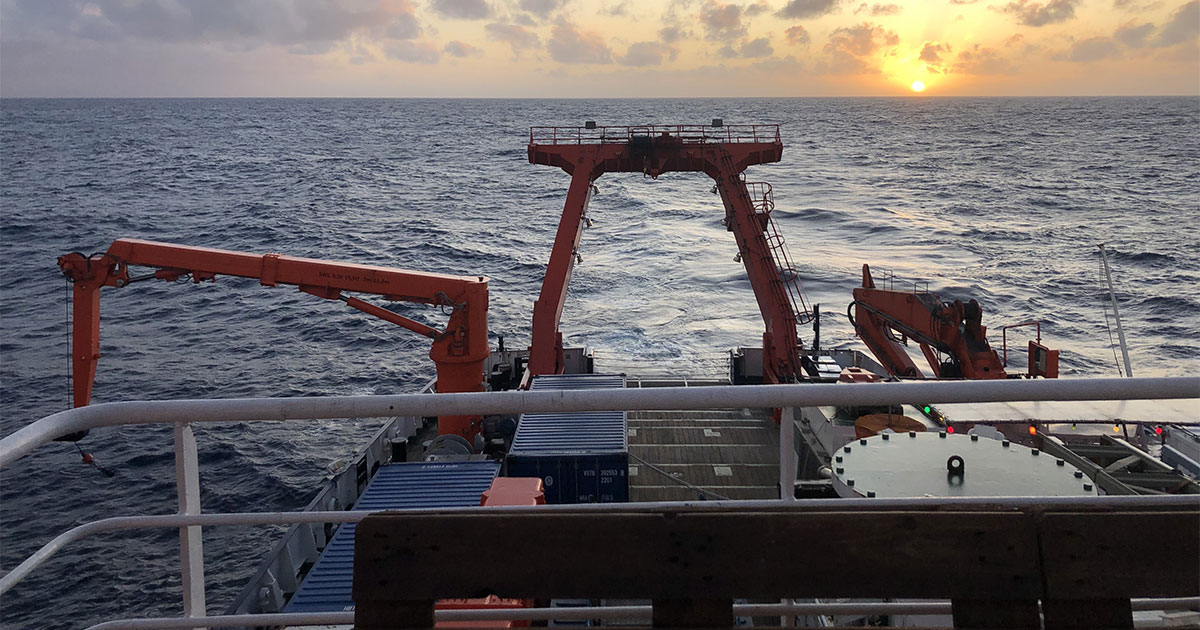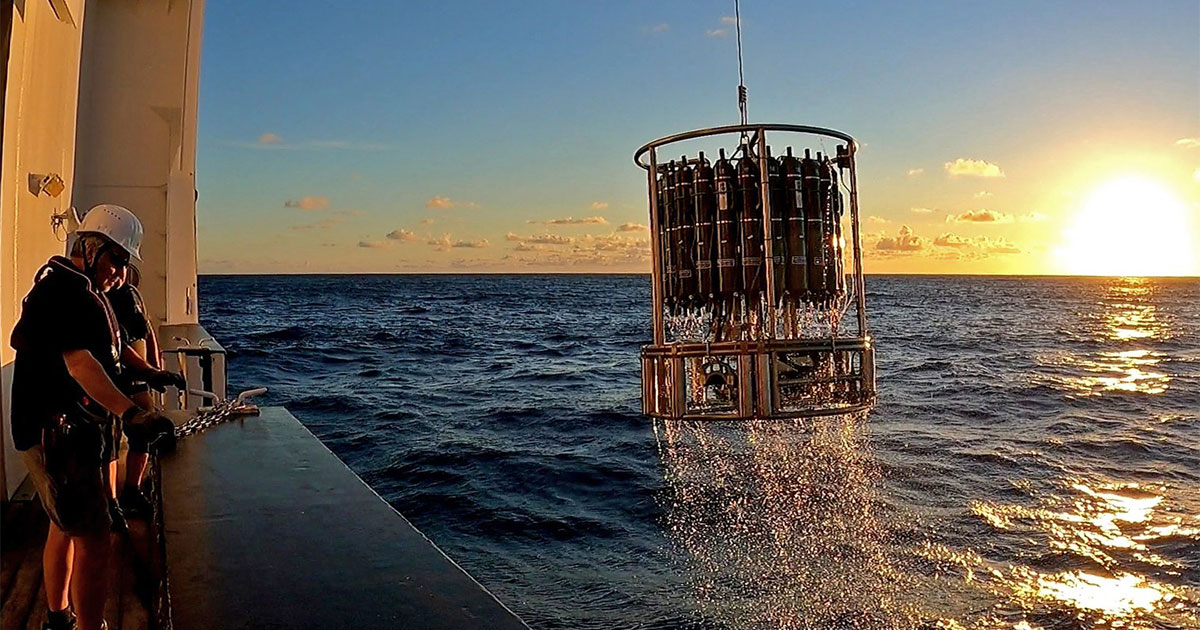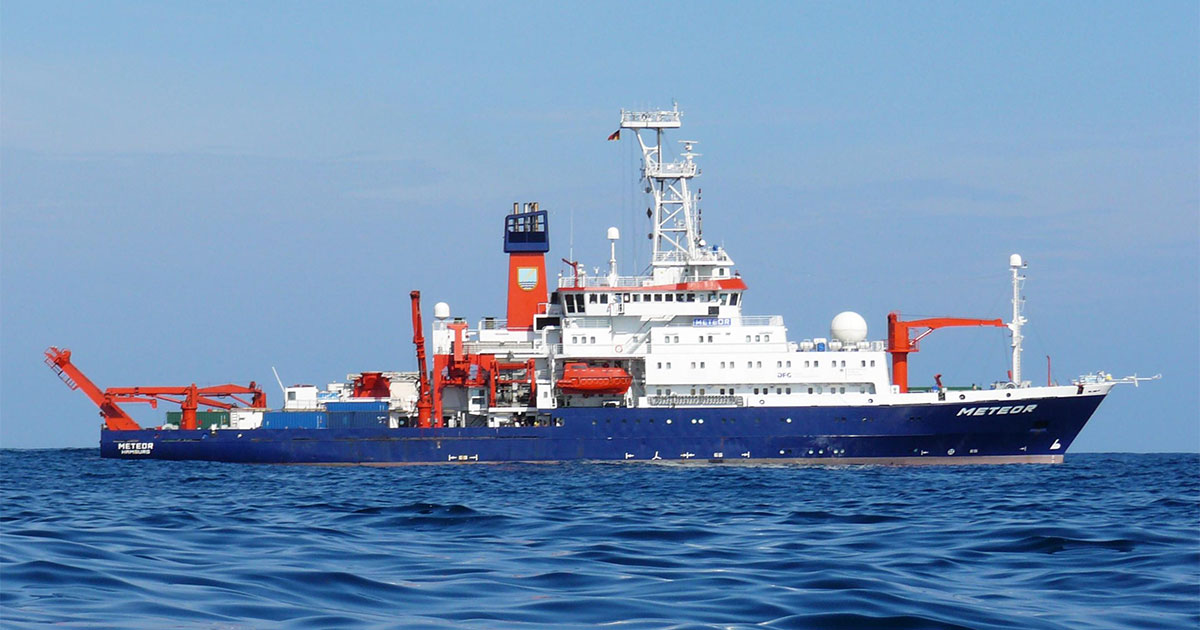The research vessel METEOR will leave Cyprus for a four-week research cruise in the Eastern Mediterranean, led by the GEOMAR Helmholtz Centre for Ocean Research Kiel. The Eastern Mediterranean Sea is particularly affected by climate change and human activities and is changing rapidly.
The planned investigations across a diverse range of oceanic settings will provide information on what these changes look like and what they mean for the ecosystems of a future (sub)tropical ocean. The data collected will be combined with information from satellites and other autonomous platforms and modelling to provide a comprehensive picture of the changes.
The Eastern Mediterranean Sea (EMS) is one of the most rapidly changing ocean basins on Earth. It is particularly affected by both climate change and extensive pressures from human activities. This makes it a unique research environment that can provide information on future changes in the global ocean.
“The Eastern Mediterranean Sea as a Model for Future Ocean Research” (EMS FORE) is the name of an international project led by the GEOMAR Helmholtz Centre for Ocean Research Kiel and funded by the Helmholtz Association as a Helmholtz International Laboratory. “In the project, we are using the Eastern Mediterranean Sea from the coast to the deep sea as a natural laboratory,” explains Dr. Thomas Browning, Junior Research Group leader in the Research Unit Chemical Oceanography at GEOMAR. He is the chief scientist of METEOR expedition M197, a key part of the project, which starts today.
 Because of the conditions there, the eastern Mediterranean can serve as a model for future marine research. (Image credit: Tom Browning, GEOMAR)
Because of the conditions there, the eastern Mediterranean can serve as a model for future marine research. (Image credit: Tom Browning, GEOMAR)
“As the surface waters of the ocean warm, this affects the nutrient supply, which in turn affects marine ecosystems,” says Browning, citing an example of the links between environmental change and ocean processes. “The waters of the Eastern Mediterranean have already warmed rapidly, faster than in other subtropical regions of the global ocean.” So, the scientists on the expedition will be looking at things like which nutrients are limiting the growth of phytoplankton, how nutrients are supplied to surface seawaters, recording the different microorganisms that live from the sea surface down to the sediments, and measuring carbon export from surface to deep waters. Continuously deployed autonomous platforms and satellite observations measuring more basic properties alongside computer modelling work will help to put the observations of the research expedition into a broader context. In addition, investigation of collected sediments will also be used to reconstruct past environmental changes in the Eastern Mediterranean over the last few thousand years.
The research expedition will host multiple teams with expertise in the different topics and deploy a wide range of instruments, from specialized equipment for collecting seawater to assess trace element concentrations without contamination, instruments collecting dust transporting nutrients from land to the surface of the ocean, through to towed video cameras to observe deep-sea life.
 The trace metal free sampling CTD will be used to collect water samples from different depths: This is one of many methods used during the EMS-PS expedition to investigate the links between environmental change and oceanic processes. (Image credit: Lea Blum, GEOMAR)
The trace metal free sampling CTD will be used to collect water samples from different depths: This is one of many methods used during the EMS-PS expedition to investigate the links between environmental change and oceanic processes. (Image credit: Lea Blum, GEOMAR)
The research expedition represents a strong international collaboration, with 28 scientists from 12 nationalities participating from GEOMAR, The University of Haifa and the Institute for Seas and Lakes Research (Israel), the Cyprus Marine and Maritime Institute (Republic of Cyprus), the Marine Biological Laboratory and University of Chicago (USA), and Xiamen University (China).



